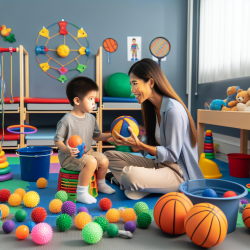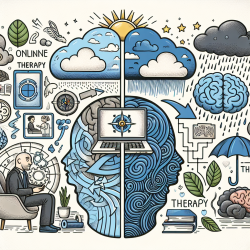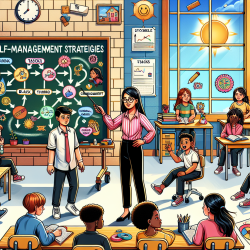As practitioners dedicated to improving the lives of children with autism, it's crucial to stay informed about the latest research and methodologies. A recent study titled Sensory Integration Training and Social Sports Games Integrated Intervention for the Occupational Therapy of Children with Autism provides valuable insights into effective interventions. This blog will summarize key findings from the study and suggest practical applications for your practice.
Key Findings from the Research
The study used a multiple baseline cross-subject design to investigate the effects of sensory integration training combined with social sports games on the expressive language skills of children with autism. The intervention consisted of three phases: baseline, intervention, and maintenance. Key metrics included the total number of words, sentences, average sentence length, and vocabulary complexity for oral expression, as well as the frequency of gestural expressions.
The study found significant improvements in:
- Expressive language skills
- Reduction in stereotypic behaviors
- Enhanced sensory integration abilities
Implementing Sensory Integration and Social Sports Games
Here are some practical steps to integrate these findings into your occupational therapy practice:
Structured Play Interventions
- Use structured games like building blocks or puzzles to improve expressive language skills.
- Gradually increase the difficulty of the games to match the child’s developmental level.
- Incorporate visual cues and verbal instructions to assist the child’s expression.
Sensory Integration Training
- Incorporate activities that stimulate auditory, visual, and tactile senses.
- Use balance and spatial perception exercises to improve vestibular and proprioceptive functions.
- Tailor sensory activities to the child’s specific needs to maximize effectiveness.
Social Sports Games
- Include cooperative games that require teamwork and communication.
- Use peer-intervened activities to enhance social skills and reduce stereotypic behaviors.
- Encourage inclusive environments where children with autism can interact with their peers.
Encouraging Further Research
While this study provides a solid foundation, further research is essential for continued improvement. Practitioners are encouraged to explore additional sensory integration activities and social sports games to find the most effective combinations for their clients.
To read the original research paper, please follow this link: Sensory Integration Training and Social Sports Games Integrated Intervention for the Occupational Therapy of Children with Autism.










